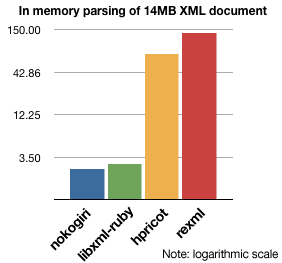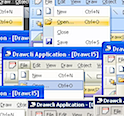If you’re a Ruby developer, the current recession needn’t be too hard.. depending on where you live, of course. There are some good jobs going out there and if you’re on the hunt for one, we’ve recently had several Rails-focused positions come by our Ruby jobs board in both the US and UK:
![]() Senior Web Applications Developer (San Francisco, CA): Gobalto is a startup developing a social media portal for the pharmaceutical development industry. They’re looking for someone with significant Rails experience (with Python/Java) and several years professional development experience. In return, the compensation package is in the $100-$120k range.
Senior Web Applications Developer (San Francisco, CA): Gobalto is a startup developing a social media portal for the pharmaceutical development industry. They’re looking for someone with significant Rails experience (with Python/Java) and several years professional development experience. In return, the compensation package is in the $100-$120k range.
![]() Back-End Rails Engineer (at the largest Rails site on the Web) (San Francisco, CA): They might not like the comparison but Scribd is, to me, the “YouTube for documents.” Scribd is one of the biggest Rails sites out there (the largest, they claim) and they need a back-end Rails engineer in downtown San Francisco. Read More
Back-End Rails Engineer (at the largest Rails site on the Web) (San Francisco, CA): They might not like the comparison but Scribd is, to me, the “YouTube for documents.” Scribd is one of the biggest Rails sites out there (the largest, they claim) and they need a back-end Rails engineer in downtown San Francisco. Read More








 Disclaimer: Every time we’ve run a piece about benchmarking or performance numbers on Ruby Inside, a retraction or significant correction has come out shortly thereafter. Benchmarking is hard, ugly, and quite often wrong or biased. It is not useless, however, but if you depend on the results in any way, you should certainly try to do your own benchmarking to confirm.
Disclaimer: Every time we’ve run a piece about benchmarking or performance numbers on Ruby Inside, a retraction or significant correction has come out shortly thereafter. Benchmarking is hard, ugly, and quite often wrong or biased. It is not useless, however, but if you depend on the results in any way, you should certainly try to do your own benchmarking to confirm.


 Vidar Hokstad is the writer behind the fine
Vidar Hokstad is the writer behind the fine 

 Want to install Ruby, RubyGems, and a collection of common gems on Ubuntu 8.10 (Intrepid Ibex) in just a few minutes? Here’s the skinny.
Want to install Ruby, RubyGems, and a collection of common gems on Ubuntu 8.10 (Intrepid Ibex) in just a few minutes? Here’s the skinny. In late 2008, 399 Ruby developers took part in the 2008 Ruby GUI Survey, conducted by Alex Fenton. The
In late 2008, 399 Ruby developers took part in the 2008 Ruby GUI Survey, conducted by Alex Fenton. The 

